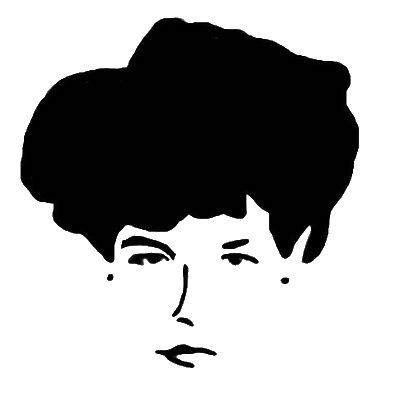a vanished page from The Vanishers
I awoke to my alarm at 6:30am. I’d had a dream, this is what I naturally assumed since the vision too directly involved me. A psychic visitor was a spy, not a meddler; I had impacted events, and this suggested that I’d simply, and meaninglessly, dreamt it all. (My Workshop professors, anti-Freudians all, held withering views about the “meaning” of dreams. How Flowers Grow Gray had this to say on the topic: She who dreams at night of what she cannot do will believe upon awakening that she has done it.) I dressed, ate very little breakfast, did Mundane Egg with Marta, played backgammon with Borka, ate very little lunch, took the lift to the basement, received, from the attendant with the heart-shaped face, my locker key and towel and, because I must have appeared ill-at-ease, a glass of water. I’d felt murky all day, not sick so much as vague, my post-dream bodily reentry like an organ transplant slow to take. I was required, after each slipper removal, to rest on the wooden bench that paralleled the lockers. Even so, my sense of disequilibrium surged. I lay on the floor, the tiles against my cheek like hot teeth. A vasculature of copper pipes was buried beneath the floor of the Goergen’s locker room, time-worn conduits for the thermal spring water that, according to a book about these springs I’d read in the Goergen’s library, were drawn from the world’s largest thermal water cave system, a complex catacomb of partially drowned rooms fed by one of the world’s largest underground lake. The air in some of these rooms was said to have a medicinal quality. According to Borka, an expert on all things gossipy and Goergen, before a certain unfortunate event, the doctors at the Goergen used to bring the sickest psychic attack victims to the Janos Molnar cave and float them about on wooden palettes. The unfortunate event, said Borka, involved a minor countess whose palette drifted through an opening in the west-most wall of the Janos Molnar, taking an intricate and untraceable path through the maze of subsequent openings in subsequent caves, the permutations of drift possibilities requiring a team of one hundred men in flat-bottomed dinghies to cover the darkened territories in a reasonable amount of days. On day ten they found her on her palette, still belted in place with a Goergen-stenciled canvas lanyard. She claimed, when they woke her, that she’d been asleep the entire time. The physical manifestation of her attack, a virulent all-body psoriasis, had been cured. Even so, the family of the minor countess sued the Goergen (thus the unfortunate part of what was otherwise a miraculous story—and big shocker, said Borka, the family was poor as pickles) and so no longer did the doctors bring their patients to the caves, at least not officially. However Borka claimed that one could still find back alley doctors with access to the caves via secret portals and who, for a ridiculous sum, would orchestrate a floating cure for durations lasting up to two weeks. I’d liked the sounds of this; I’d told myself that, as a last resort, I would seek out one of these back alley floating cure doctors. As I lay with my cheek against the tiles, I imagined I could hear, through the grout and ceramic, the wind of hoary breathing, proof of this underworld navy of the sick.
